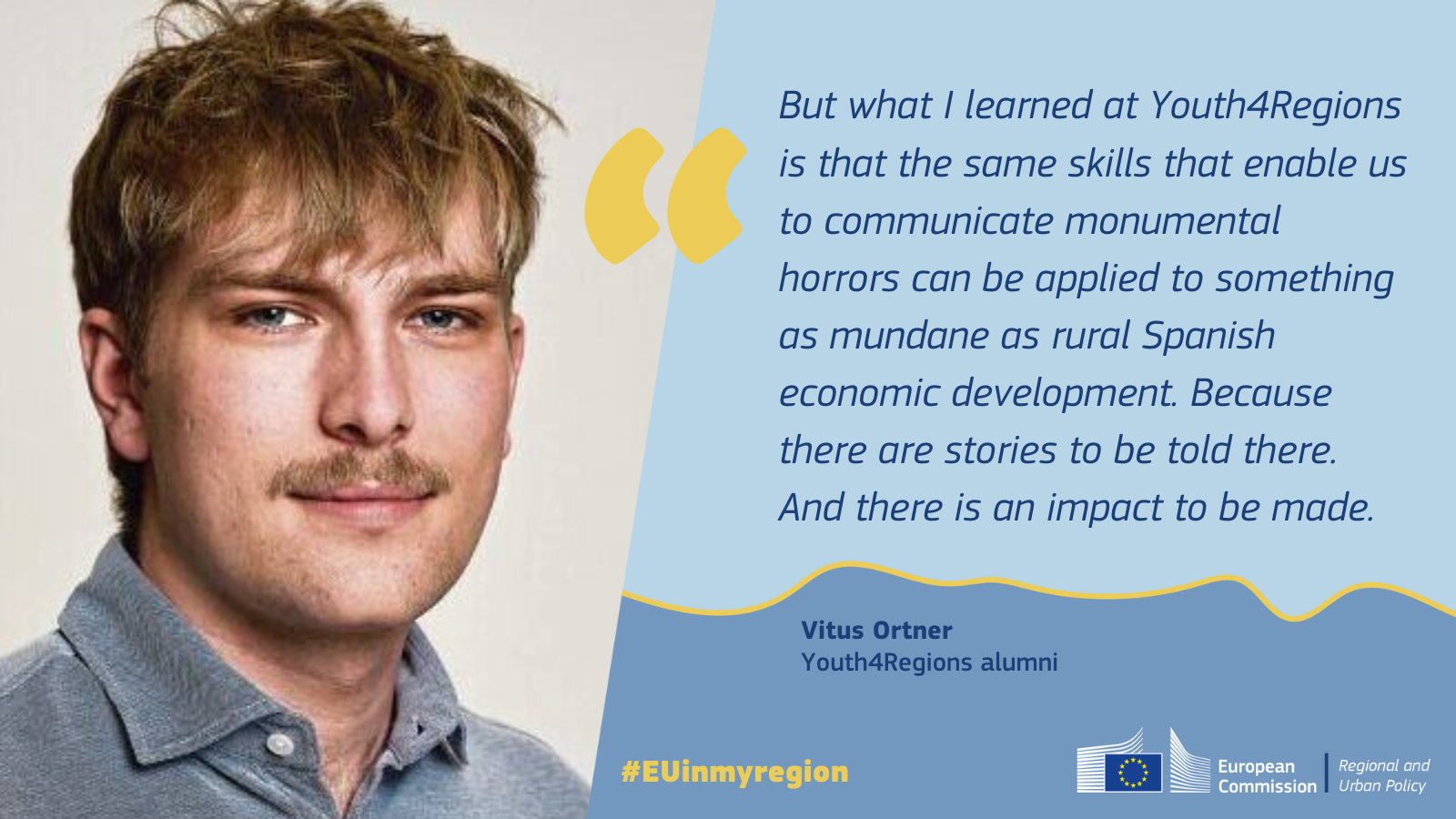
Now this is a story about my personal experience at the Youth4Regions project in Brussels. So why am I telling you this? When I arrived at Bruxelles-Zaventem Airport on 7 October, the first thing I read was the abovementioned horrible news. It would accompany me throughout the week. This is a story about how great journalism, and terrible journalism even more so, can shape experiences – especially when you’re trying to learn about the profession.
Very fittingly, one of the first things we studied was ethics in journalism. Wytse Vellinga, who works for the Dutch public broadcaster, introduced us to the Global Charter of Ethics for Journalists. He stressed how too few reporters in the field actually know about it, let alone use it. How right he was. Article five states: ‘The notion of urgency or immediacy in the dissemination of information shall not take precedence over the verification of facts, sources and/or the offer of a reply.’
Sitting in Wytse’s class, I could bear witness to this rule being thrown to the wind by outlets all over the world. News from Israel and Gaza flickered across many phone screens. Professional news outlets, never to be outdone by social media reporters, prioritised speed to the extent that they quoted a terror organisation as if it were a credible source, and speculated about the specific atrocities that had been committed, with nothing more but hearsay as a backing.
But still, glued to our phone screens we were, especially me. During the week, this would also become an exercise in a key journalistic skill: paying attention. Our visits to the European Commission and the European Parliament were riddled with short phone breaks and occasional debates on the state of affairs. However, they were also an inspiration. While horrible news, often conveyed by substandard journalism, clogged up my social media feeds, the European institutions offered an alternative vision.
As boring and bureaucratic as talks on cohesion policy may be, aren’t they an incredible luxury? While another part of the world was bloodily tearing itself apart, we had the privilege to concern ourselves with topics such as economic development projects in parts of rural Spain. These are areas which, in a global context, really do not need economic development, but which the wonders of cohesion policy are bringing up to par with the rest of the European Union.
Of course, interpersonal relationships and networking are a huge part of the Youth4Regions project. Many talks and debates unsurprisingly revolved around the Hamas attack and its consequences. This provided an ample supply of discussion material, which I would have much preferred to not have. But at the same time, it revealed yet another journalistic conundrum. To convey a lot, you need to know a lot. But to know a lot far too often means to know more than is easy to process. And for that, being with a group of inspiring young journalists with an insatiable hunger for information and all the downsides that come with that, was a blessing. Sharing, listening, debating, and deciphering together make for a clearer picture and for easier processing of events, which is absolutely necessary for clear and considered journalism. So, to offer an olive branch to the journalists who in all honesty didn’t exactly shower themselves with glory during that fateful week, they may have been as overwhelmed as I was as a reader and viewer.
The stark contrast between the eventful and uplifting Youth4Regions week and the news stories filling the airwaves at the same time had one more lesson to reveal. Journalism doesn’t just inform, journalism impacts. Within one week, we bore witness to violent protests around the world, even next to the convention centre we frequented. We saw unknown unity among western governments in response to the horrific pictures coming out of southern Israel. We saw fears of a resurgent antisemitism leading to increased police presence. And we saw how journalism could directly impact us, our debates, our feelings, and our actions, proven by the fact that this very article tells the story of Youth4Regions through the lens of something wholly unrelated.
The power of journalism was hammered into us at Youth4Regions, and it played out right before our eyes. Cohesion policy doesn’t foster the same amount of emotion and upheaval as a war in Gaza does, and that is great. It means our institutions are working. But what I learned at Youth4Regions is that the same skills that enable us to communicate monumental horrors can be applied to something as mundane as rural Spanish economic development. Because there are stories to be told there. And there is an impact to be made.
By Vitus ORTNER
DISCLAIMER: This article was written by a participant of the Youth4Regions programme. The author is sharing thoughts and views about their experience at the EURegionsWeek held in October of this year. The immersive experience provided them with the opportunity to broaden their horizons, gather insights from professional journalists, and discover the workings of EU policy and institutions. The perspectives shared in this piece solely belong to the author and do not reflect the official stance of the European Commission.